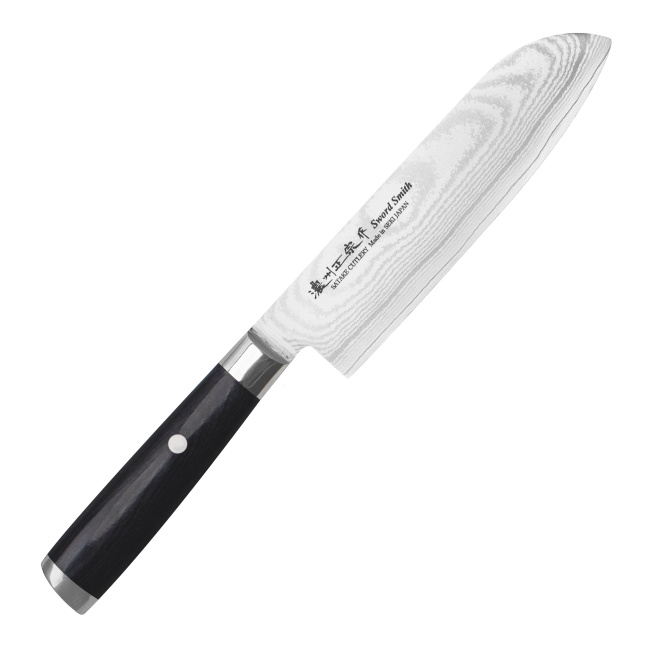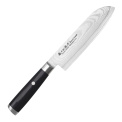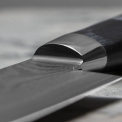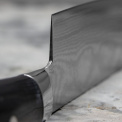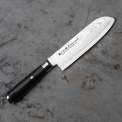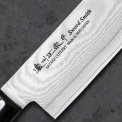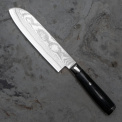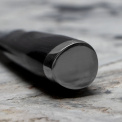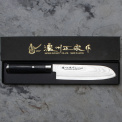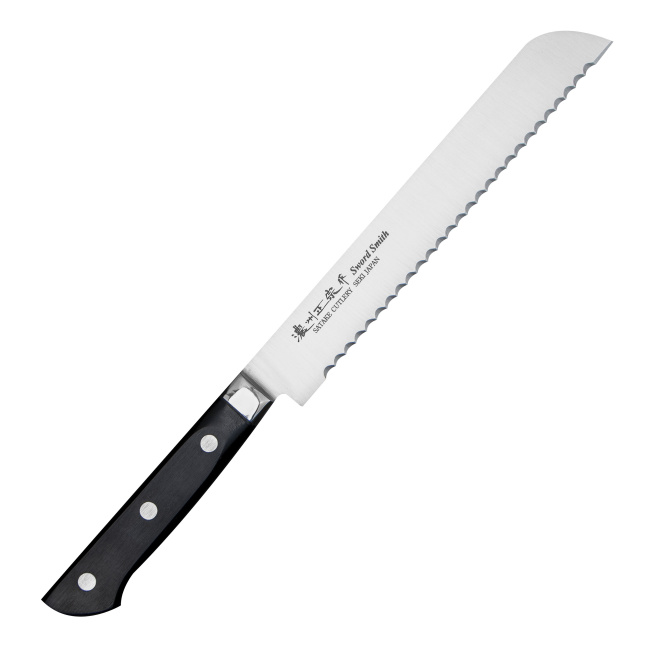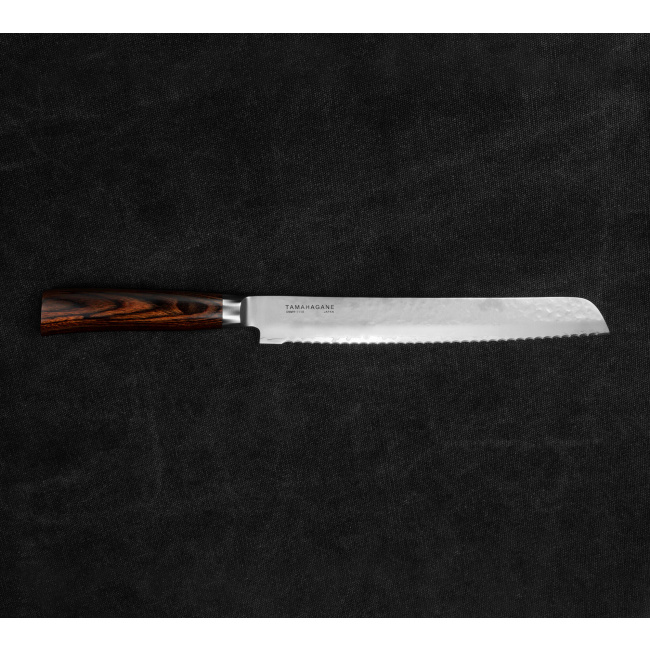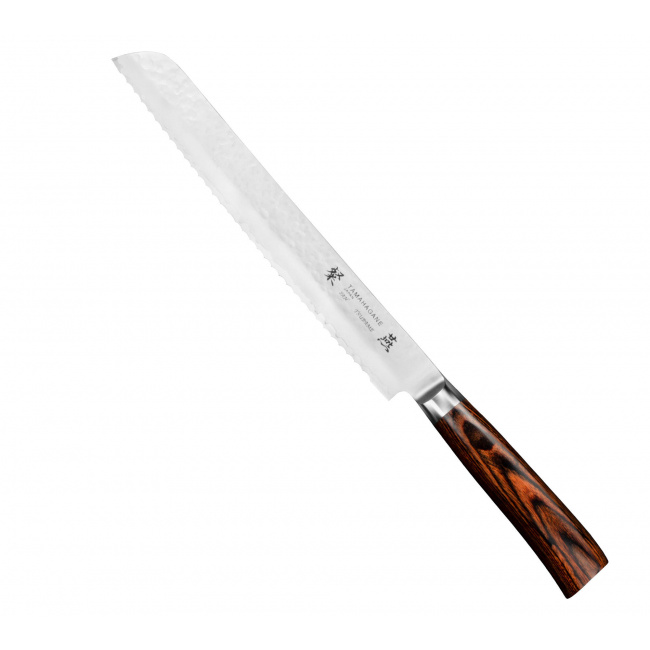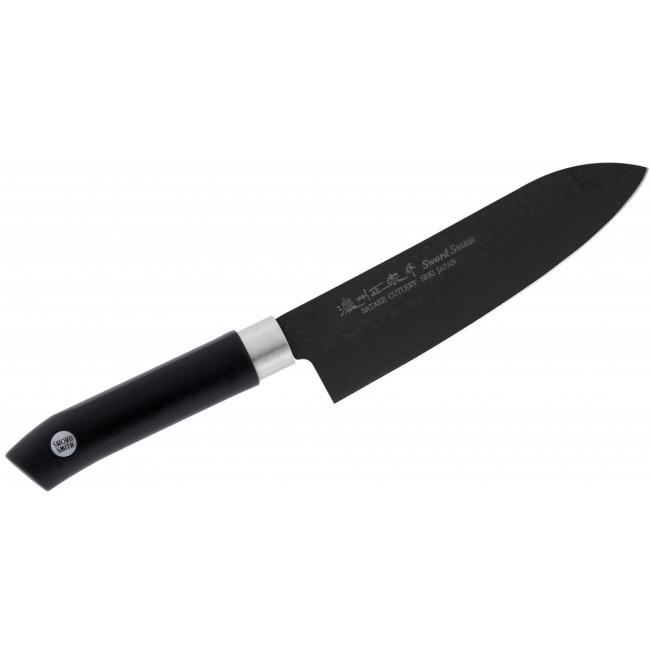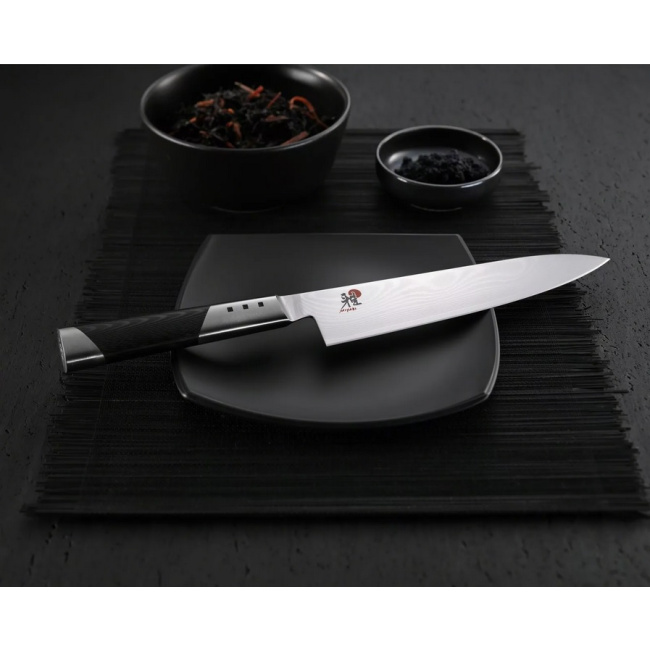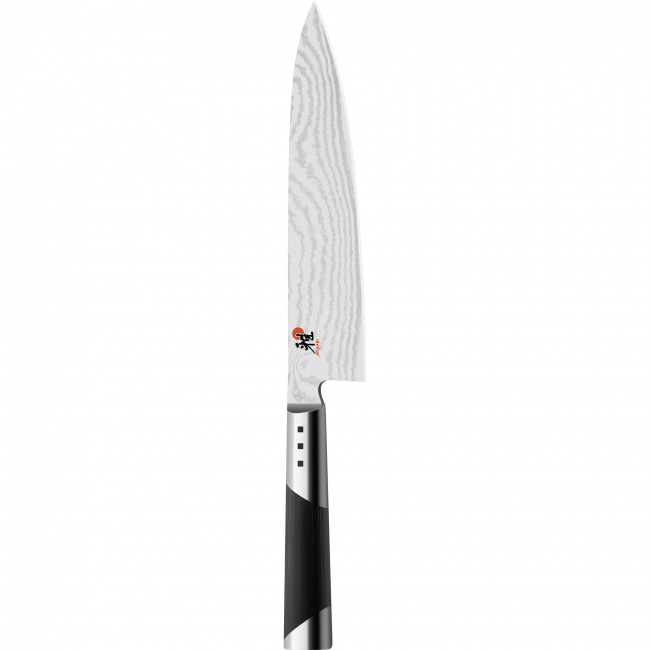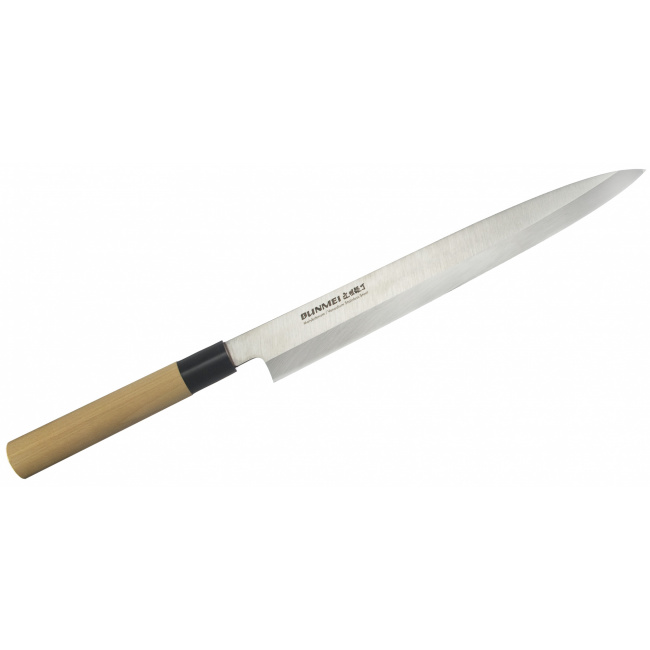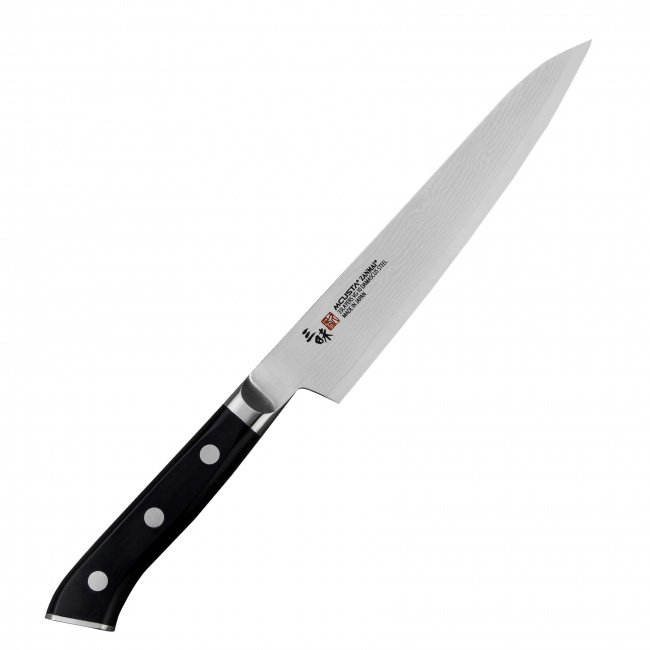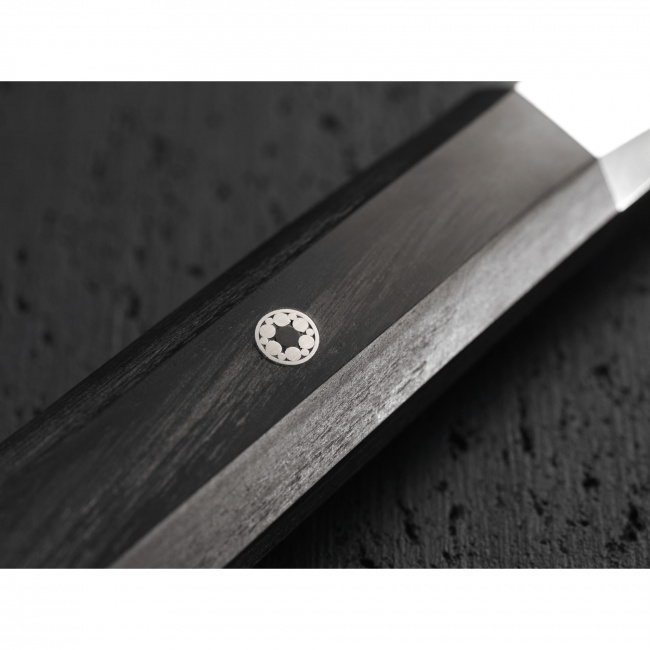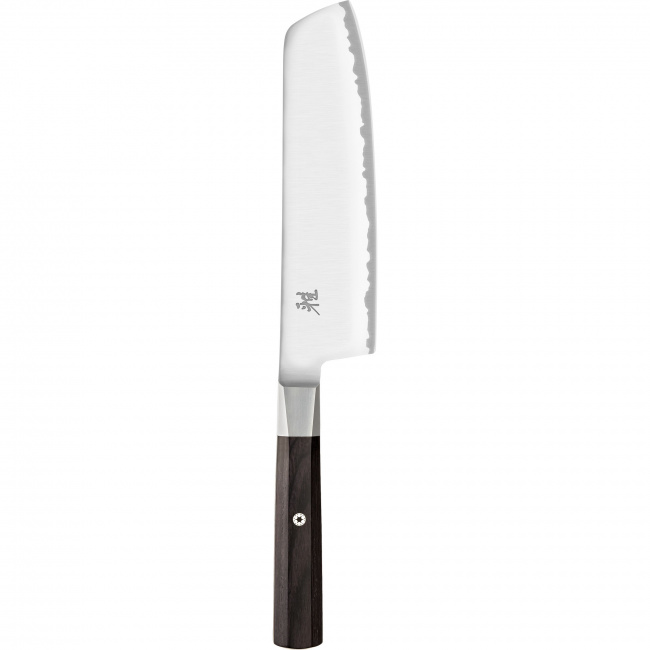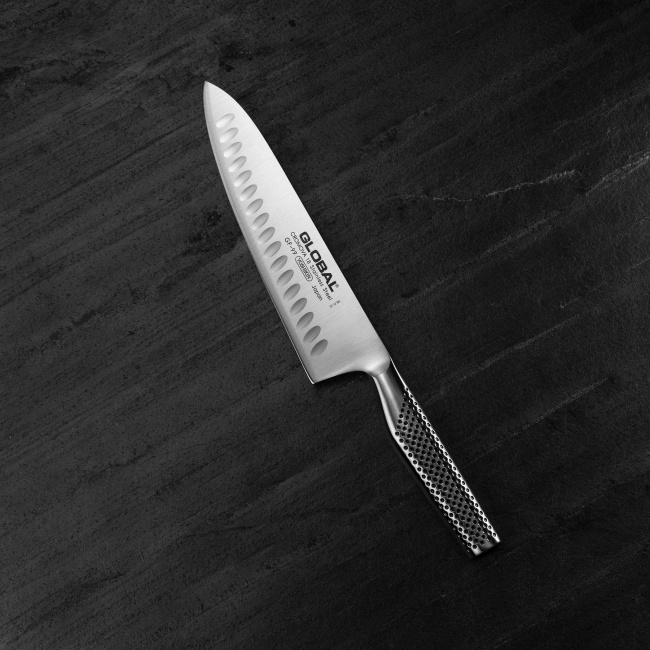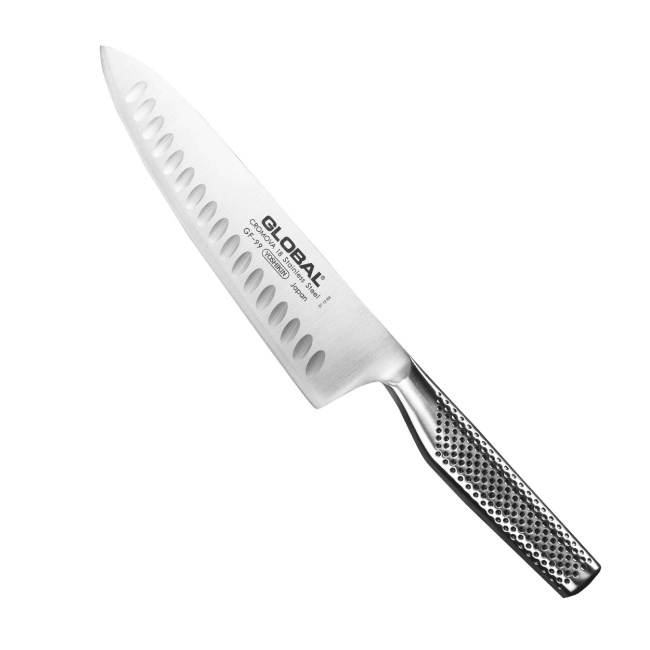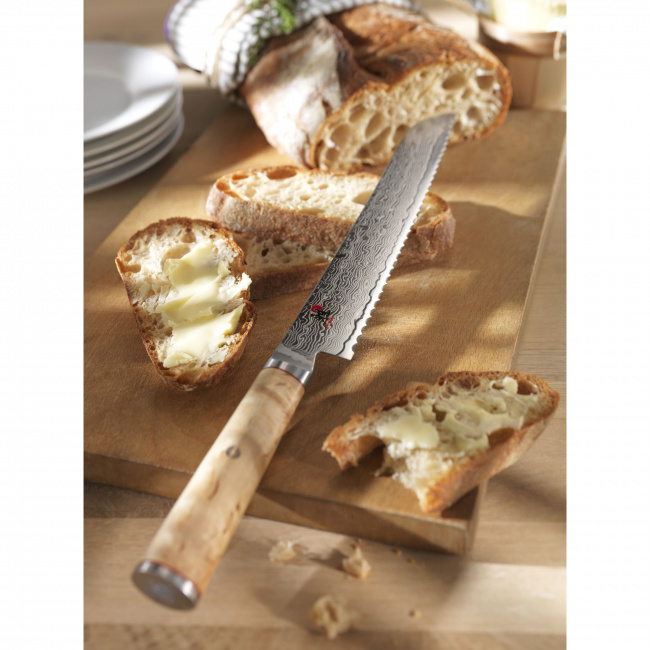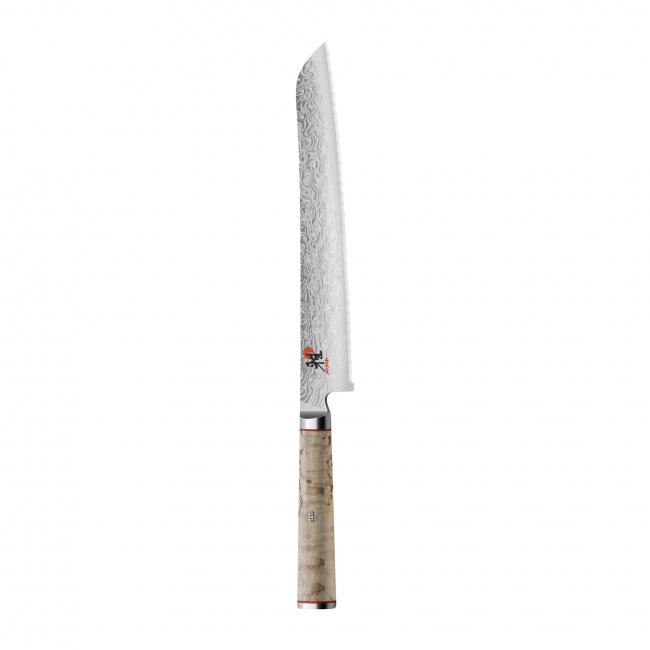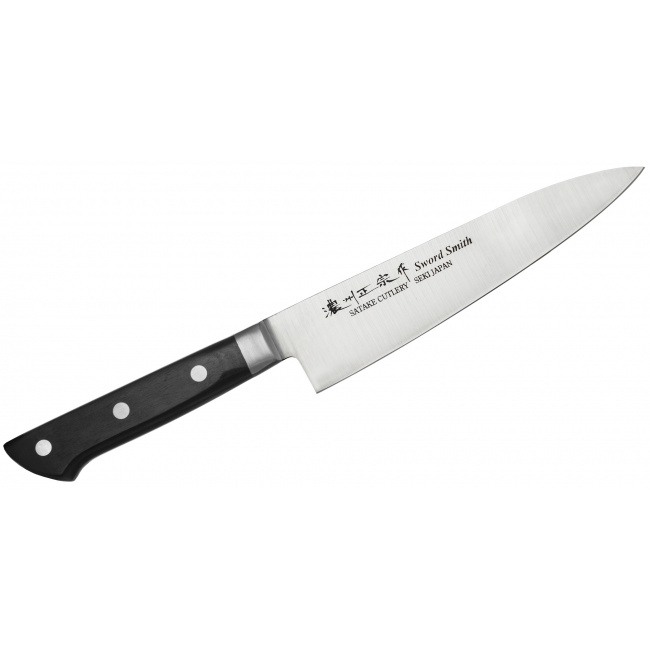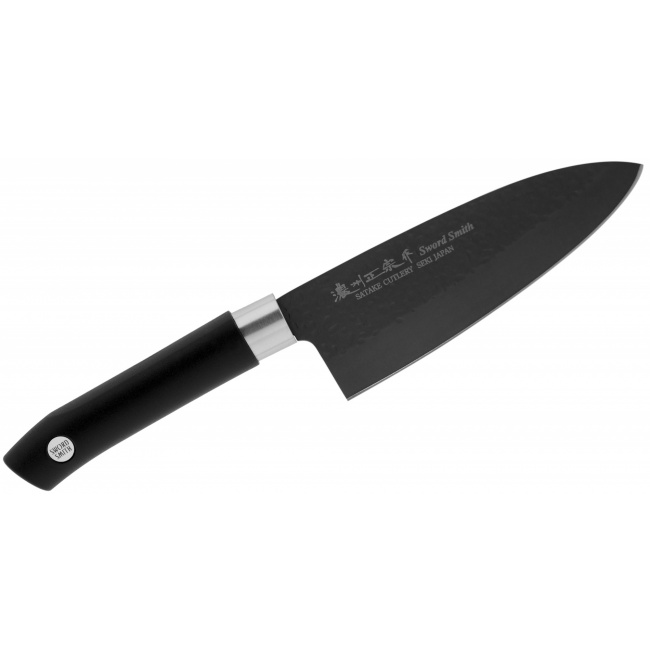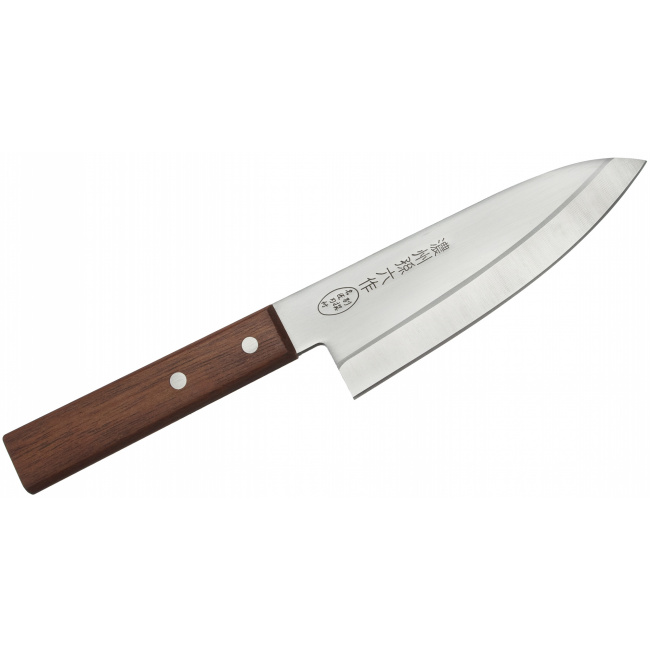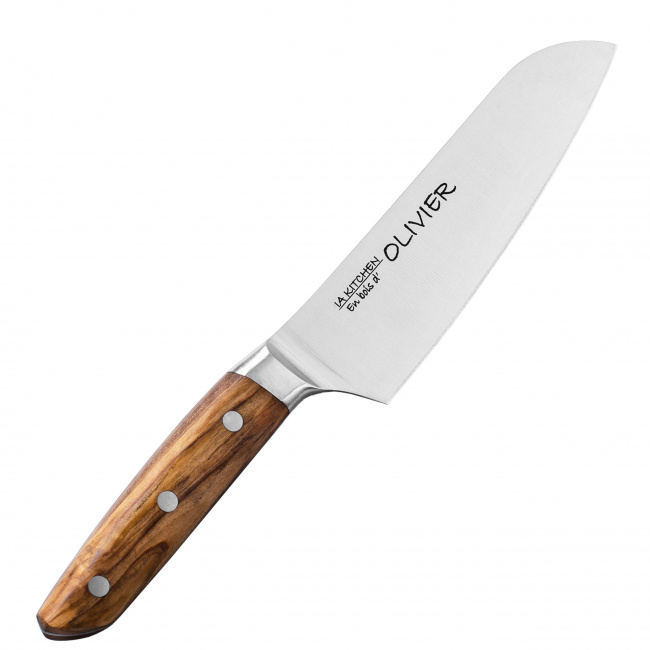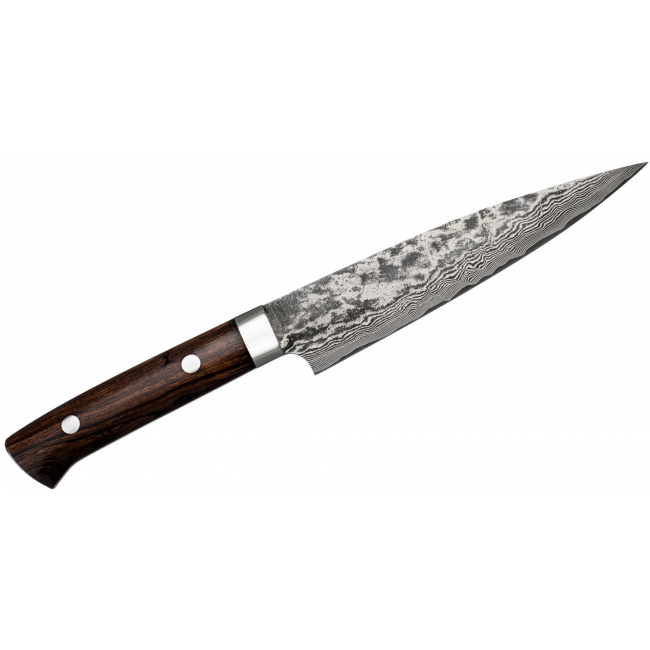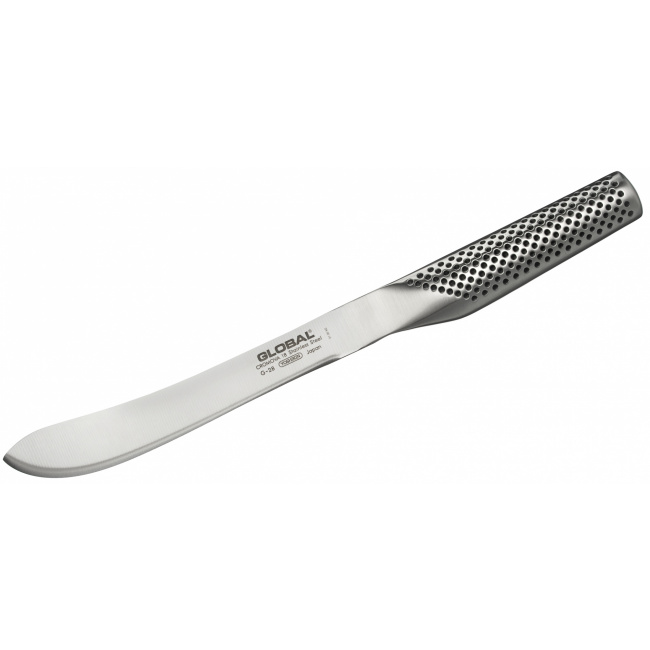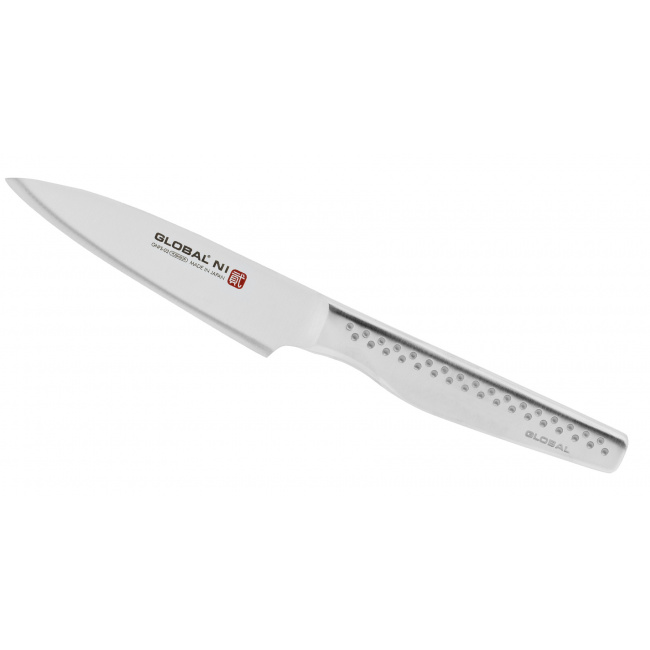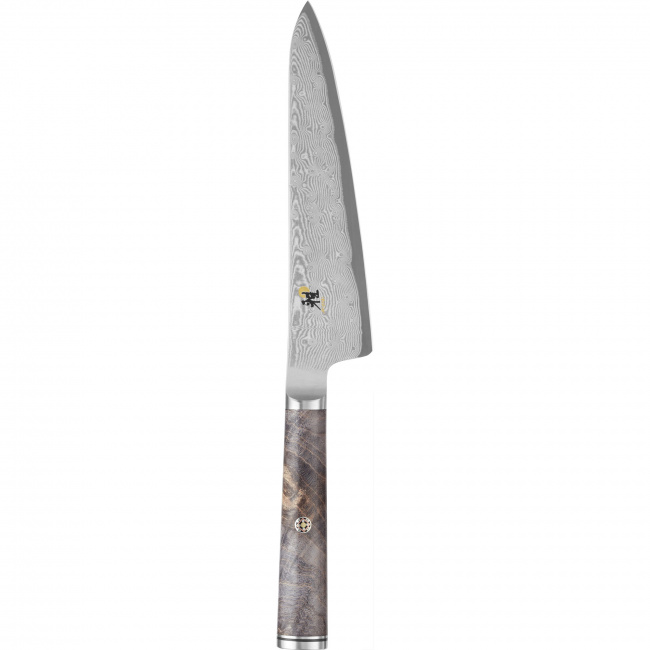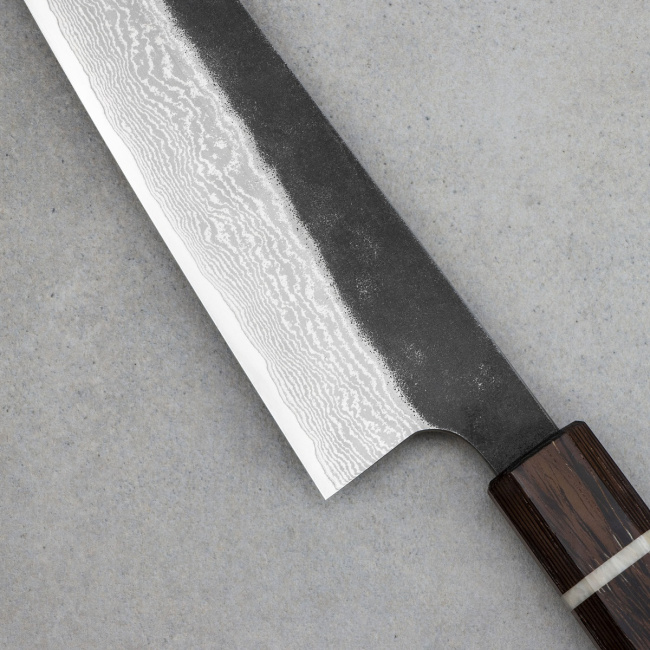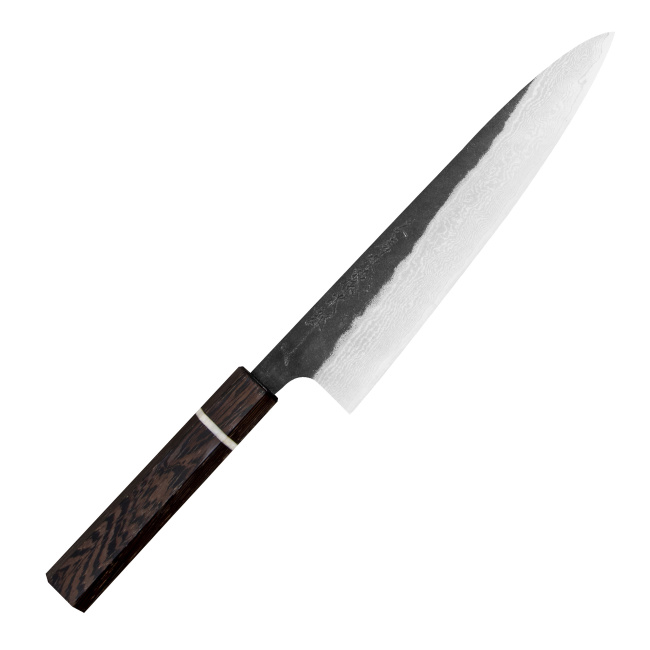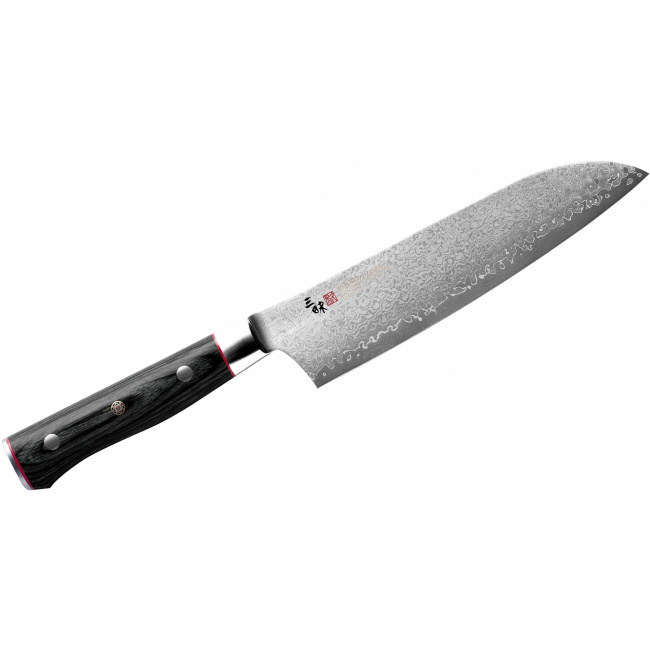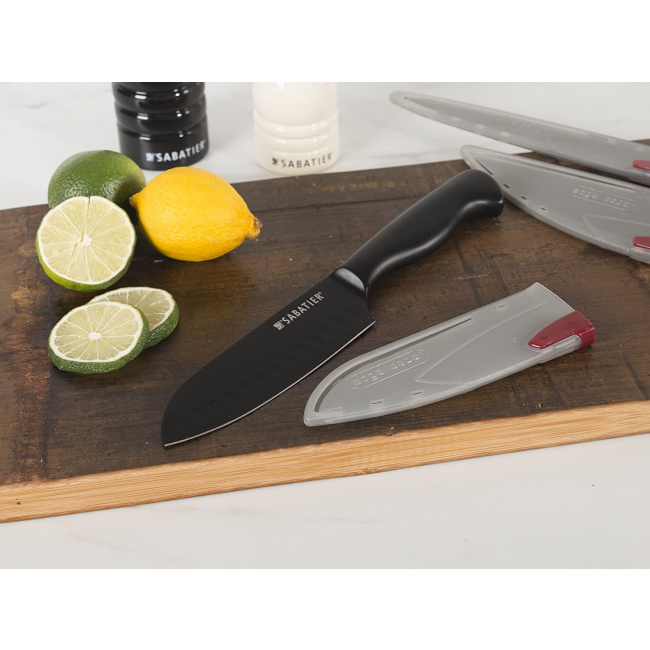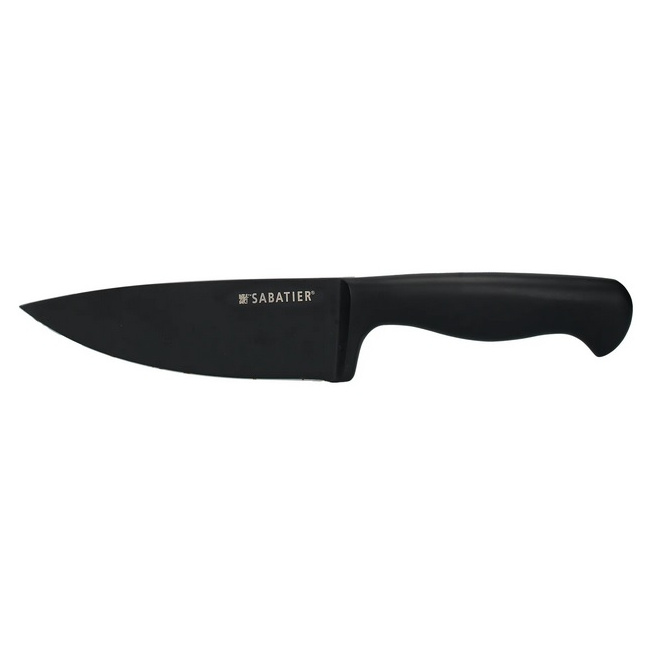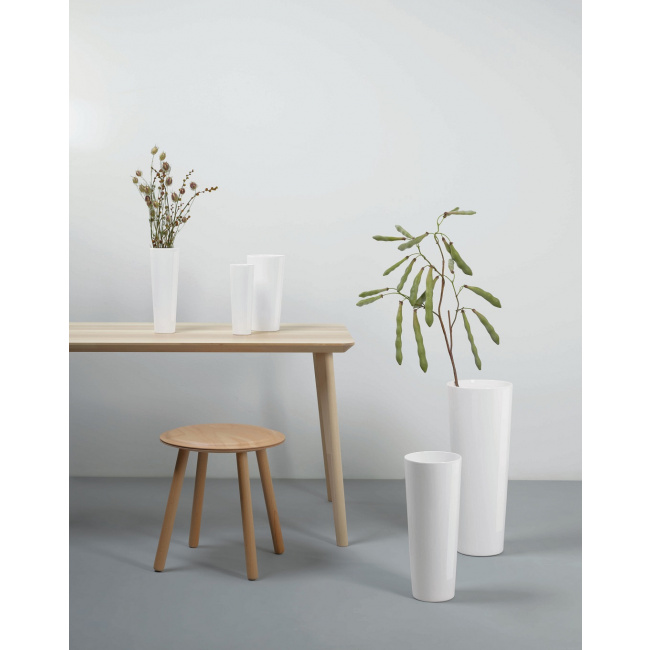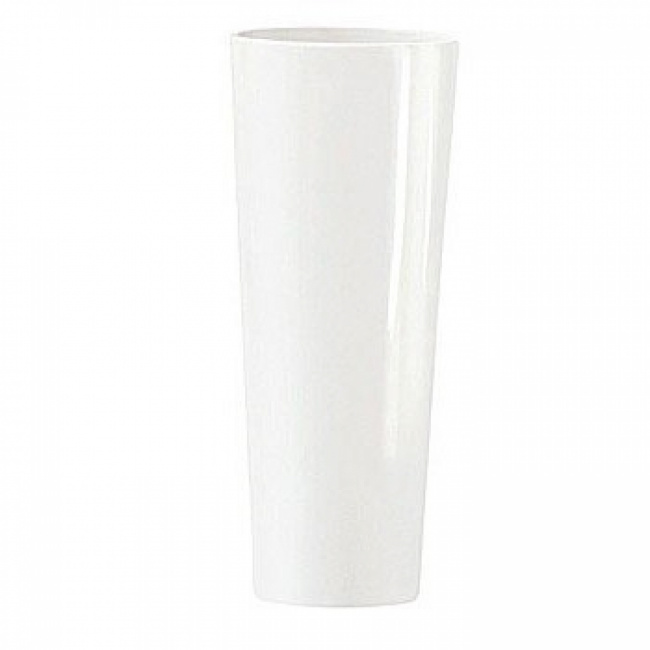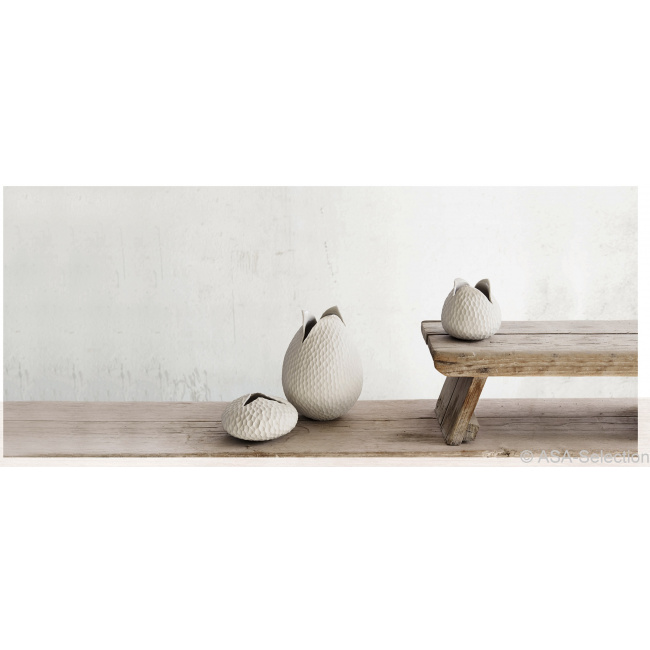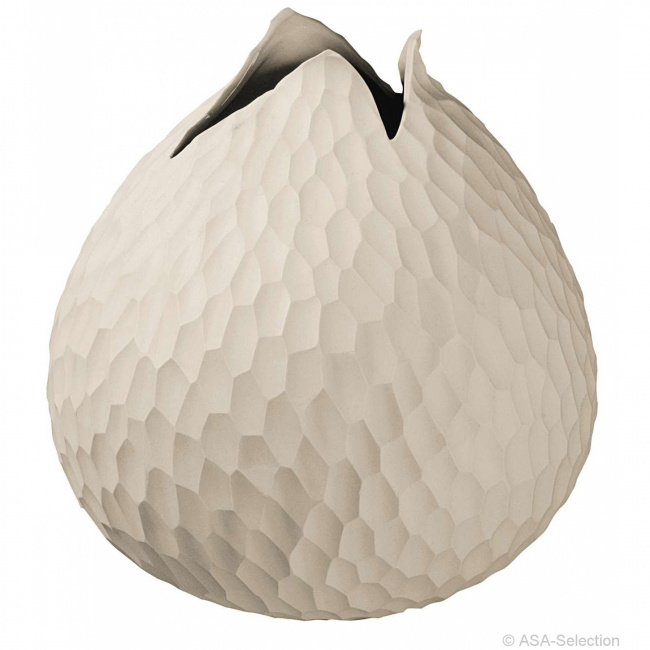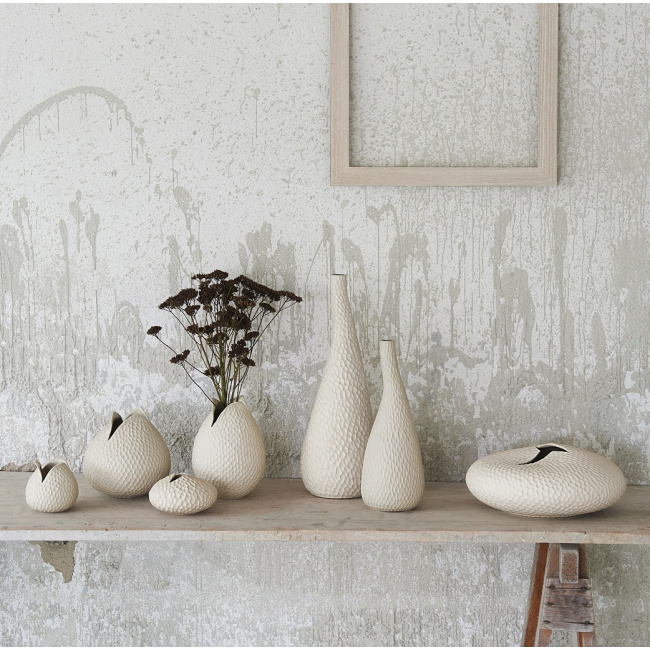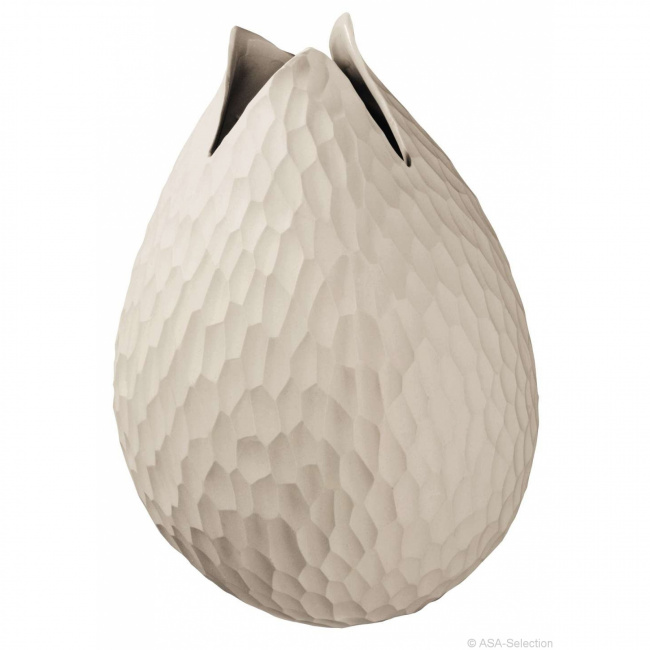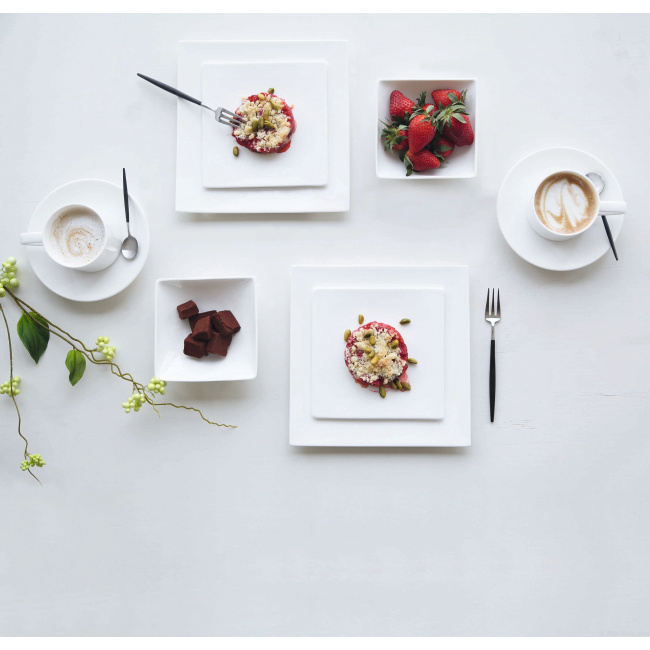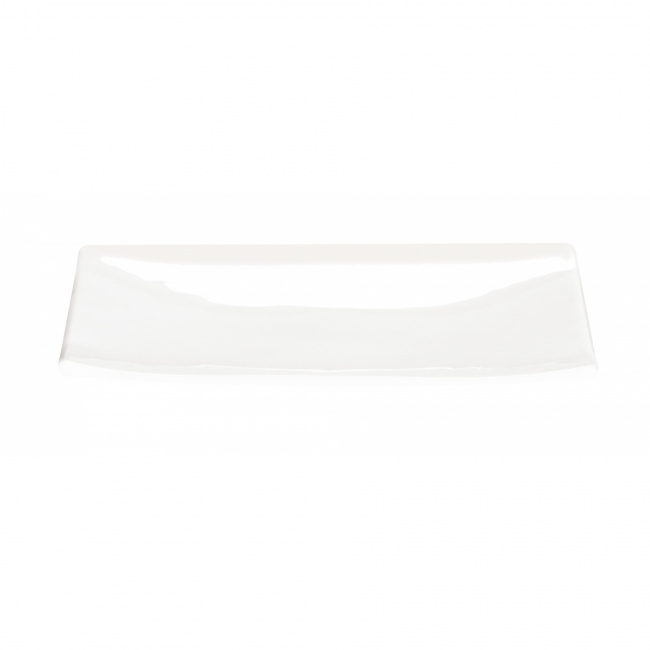Damascus Santoku Knife 17 cm
Designed for slicing vegetables, fruits, meat, and fish, the Santoku knife features a wide blade that makes it easy to transfer chopped ingredients. The high-positioned handle prevents it from hitting the cutting board. Due to its size, the Santoku knife is perfect for cutting large products such as watermelon or cabbage.
The knife comes packaged in a blister box, making it an excellent gift choice.
Specifications:
- Blade: 69-layer steel with MVS10Cob core
- Blade hardness: 60-61 HRC
- Blade length: 17 cm
- Blade width: 4.4 cm
- Weight: +/- 228 g
MVS10Cob Steel:
MVS10Cob stainless steel, almost identical in composition to the renowned VG-10 steel from the Takefu steelworks, is produced by Nachi Fujikoshi, a company specializing in high-quality tool manufacturing.
This steel is characterized by excellent edge retention and corrosion resistance, with a typical hardness of 61 HRC, occasionally reaching up to 62 HRC. It allows for achieving exceptional cutting edge properties even when using high-grit sharpening stones, maintaining aggressiveness after polishing. These features make it a popular choice for kitchen knives as well as folding knives intended for everyday carry (EDC).
Satake:
Since 1947, the Japanese company Satake has been producing high-quality kitchen knives, combining traditional thinking with the latest production methods. Satake knives are distinguished by sharpening at a 15-degree angle, which, combined with optimal shape and high-quality materials, creates a top-tier product offering excellent balance and sharpness.
Maintenance:
Stainless steel kitchen knives require less maintenance. The presence of chromium and other elements makes them more resistant to corrosion than carbon steel knives. However, they still require proper care. After use, knives should be washed and dried or left to dry on a dish rack or magnetic strip. When storing knives in a block, it is best to insert them dry. For long-term storage, coating the blades with edible oil, avoiding quick-rancid oils like linseed oil, is recommended. Although stainless steel is corrosion-resistant, it can develop a patina in unfavorable conditions if not properly maintained.
It is absolutely unacceptable to wash knives in a dishwasher. The strong chemicals used in dishwashers can cause discoloration on the blade, permanently damage handles or their coatings, and high temperatures can lead to the tempering (softening) of the cutting edge. For the same reason, do not use the knife for stirring or checking the hardness of vegetables or meat in boiling broth.
 DPD Courier: 15.99 PLN
DPD Courier: 15.99 PLN InPost Courier: 14.99 PLN
InPost Courier: 14.99 PLN InPost Paczkomaty (Parcel Lockers) 24/7: 14.99 PLN
InPost Paczkomaty (Parcel Lockers) 24/7: 14.99 PLN